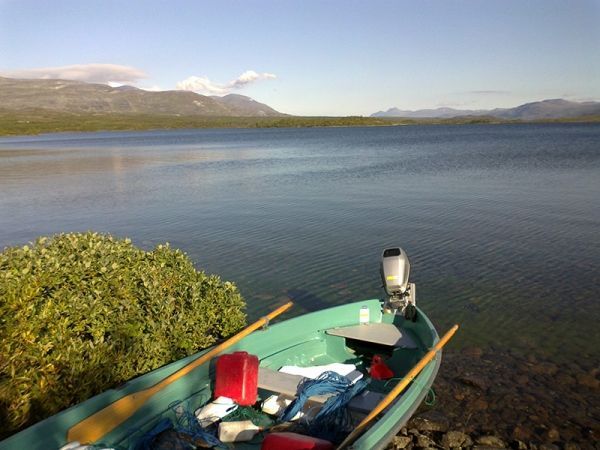Although often regarded as a problem for future generations, climate change is already having a profound impact on northern lakes, the species they contain and the humans that rely on them for food and fun. New research published in the journal Ecology Letters sheds new light on the way climate change and human activities are reshaping subarctic lakes.
“Climate change is already a reality in the northernmost regions of the earth,” says Dr. Brian Hayden, a fellow of the Canadian Rivers Institute in the biology department at the University of New Brunswick and lead author of the study. “New conditions are allowing traditional livelihoods to be replaced by intensive forestry, mining and agriculture. However, we know relatively little about how these changes are affecting local wildlife and the human populations which depend on it. This study is one of the first to quantify how the lakes in the subarctic will respond to this new environment.”
The team of researchers studied 30 lakes, all situated above the Arctic Circle in Europe, where climate change is already evident in shorter winters and longer, warmer summers. The team examined the diet of fish and invertebrates with chemical tracers called stable isotopes, which reveal the food that fuels these animals. Their study region mimicked the type of changes predicted for this region in the next 100 years.
Continue reading at University of New Brunswick.
Image via University of New Brunswick.


